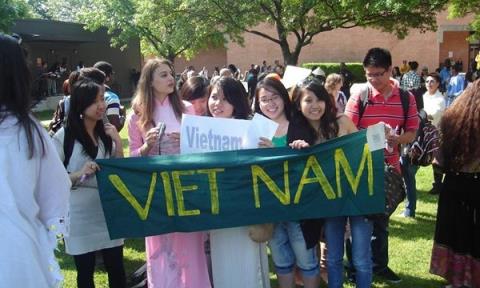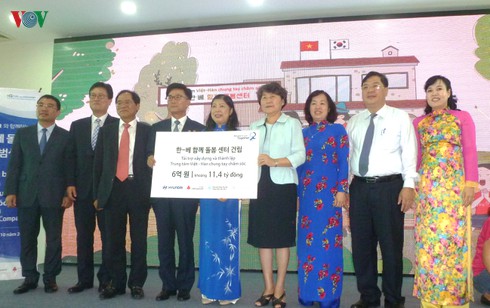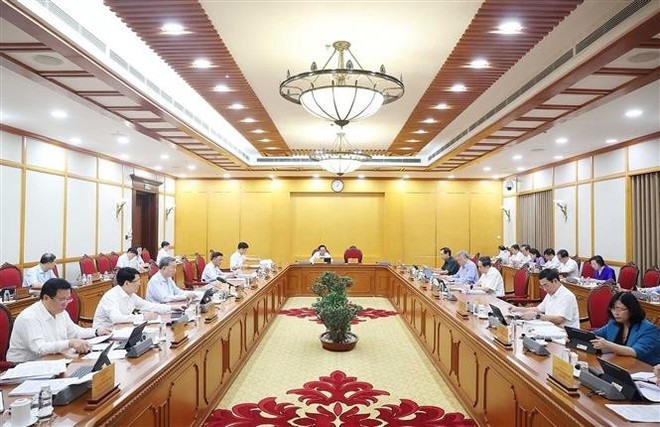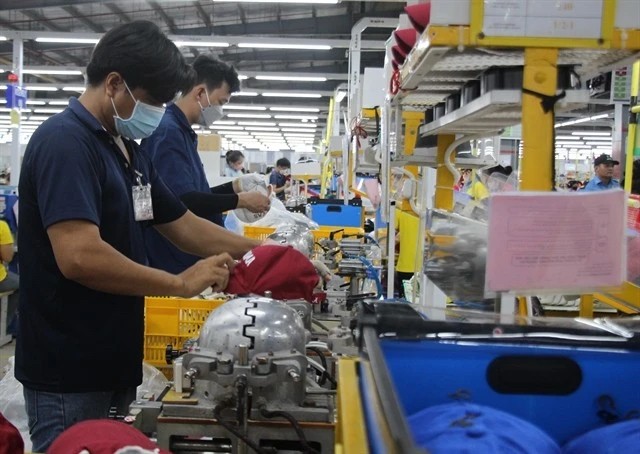Vietnam always promotes freedom of movement and residence
"Freedom of movement and residence is one of the fundamental rights of citizens recognized in the Constitutions of Vietnam throughout different periods of time. In reality, Vietnam has always done its best to ensure that these rights be fully implemented," the statement was made in an article recently published on the People's Army News. The full article is re-posted as below.
 |
Members of National Assembly in HCM.City discuss the implementation of the Law on Residence in Go Vap district. (source: Go Vap district People's Committee website).
Article 23 of the 2013 Constitution reads, “The citizen shall enjoy freedom of movement and of residence within the country; and can freely travel abroad and return home from abroad. The exercise of these rights shall be provided by the law.” The Law on Residence issued on November 29, 2006, amended on 2013, has created a favorable legal foundation for citizens to exercise the freedom of choosing places of residence with simple registration procedures which are convenient, quick and non-disruptive to the people.
Regulations on the movement and residence of Vietnamese citizens and foreign nationals in Vietnam have also been clearly stipulated in the Civil Code, the Law on Vietnamese Nationality, the Law on Foreign Investment and other relevant legal documents, and, at the same time, are being supplemented and amended toward a higher level of openness.
 |
The Vietnamese Government has signed 78 treaties and bilateral agreements on entry visa exemption for foreign nationals with many countries and territories. (Photo for illustration: zing.vn)
Vietnam has signed or participated in many international conventions pertaining to entry-exit such as the Vienna Convention on Diplomatic Relations, the Vienna Convention on Consular Relations, the Chicago Convention, the UN Convention on Privileges and Immunities.
The Vietnamese Government has signed 78 treaties and bilateral agreements on entry visa exemption for foreign nationals with many countries and territories and signed the border demarcation agreements with neighboring countries with a view to facilitating cross-border movement of citizens of both sides. Vietnam proactively participates in the ASEM Ministerial Conference on Cooperation for the Management of Migratory Flows between Europe and Asia, the APEC Business Travel Card (ABTC), creating favorable conditions for APEC entrepreneurs’ entries and exits for the purposes of investment, trade and services within APEC.
Vietnam even considers granting Vietnamese citizenship for stateless people with up to 20 years of permanent residence in Vietnam (even though Vietnam has not yet become a member of the United Nations Convention on Statelessness).
 |
Vietnamese students are present in 50 countries. In US, Vietnam ranks sixth among all sending countries with nearly 29,000 students studying in the nation. (source: Bao Dat Viet)
During the past years, Vietnam has reduced some entry-exit procedures by over 40%. The Law on Entry, Exit and Residence of Foreign Nationals in Vietnam has been approved by the National Assembly at the seventh session of its 13th legislature. In reality, there is a sharp increase in the number of foreign nationals of different nationalities entering Vietnam for a perse set of purposes. In 2015, 7,943,651 foreign nationals came to Viet Nam. Between 2010 and 2014, nearly 90,000 Vietnamese workers went abroad to work each year on average. Currently, about 500,000 Vietnamese workers are working in over 40 countries and territories. Vietnamese students are present in 50 countries.
 |
A joint project assisting the repatriation of Vietnamese brides in Korea, an evidence of Vietnam's supportive policy for overseas people. (source: VOV)
Vietnam has signed 16 treaties/agreements on repatriation of Vietnamese citizens who are not granted residence by the destination countries, and is currently negotiating with Japan, Bulgaria, Romania and other countries on this agreement. Since 1999, within the framework of such bilateral treaties/agreements, Vietnam has accepted the return of thousands of Vietnamese and created favorable conditions for them to re-integrate into the local community and participate in the social-economic life of the country.
Like any other country in the world, freedom of movement and residence in Vietnam shall be limited by law, in accordance with international provisions on human rights, for the purpose of defending national security, public order, public health, social ethics or the enjoyment of freedoms of other people. Abuse of freedom of movement and residence to violate the law or conduct hostile actions that disturb national security shall be punished under the law and penalties can include movement restrictions, prohibited residence or compulsory residence./.
( VNF/PANO )
Recommended
 National
National
Vietnam News Today (Jun. 7): Prime Minister works with Estonian firms to accelerate projects in Vietnam
 National
National
Vietnam News Today (Jun. 6): Foreign Investment in Vietnam Surges in Five Months
 National
National
Vietnam News Today (Jun. 5): PM sets off for attendance at UNOC 3 in France, official visits to Estonia, Sweden
 National
National
Vietnam News Today (Jun. 4): Vietnam - Promising Candidate for Southeast Asia’s Next Powerhouse
Popular article
 National
National
Shangri-La Dialogue 22: Vietnam Highlights Some Issues of Ensuring Stability in a Competitive World
 National
National
Vietnam News Today (Jun. 3): PM Pham Minh Chinh to Attend UN Ocean Conference, Visit Estonia, Sweden
 National
National
Vietnam News Today (Jun. 2): Vietnamese Trade Mission Sounds Out Business Opportunities in United States
 National
National



